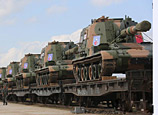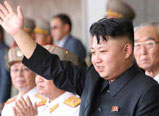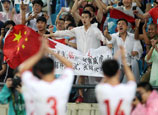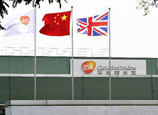
NEW YORK, July 28 (Xinhua) -- How to increase China's labor market flexibility and optimize the order of different reforms with the goal of financial stability and higher efficiency are two major issues the country needs to think of in its medium-term reforms, an expert said Sunday.
"What should be paid attention to is the meaning and relationship of five financial reforms, especially the optimal order of them, namely the reforms of banks' risk management, risk supervision of the regulatory system, market-oriented interest rates and exchange rates, opening of capital account and internationalization of the Chinese yuan," Shang-jin Wei, professor of Finance and Economics at Columbia University, told Xinhua.
From the perspective of financial stability, the best order is to strengthen risk management and regulation ability first, followed by deepening market-oriented interest rates and exchange rates, and on that premise can other reforms be considered, he said on the sidelines of a forum.
The other issue that demands attention is a less flexible Chinese labor market now compared to a very flexible one in the past, Wei said.
If the labor market becomes relatively less flexible or even "stiff" like some European countries such as France or Italy, it may restrain China's growth, especially when facing negative impacts like a financial crisis, he added.
Talking about the newly-coined word of "Likonomics," which refers to Chinese Premier Li Keqiang's economic policies, Wei said it is just a fancy word created by some investment banks.
Premier Li's economic policies were interpreted by some investment banks as no stimulus, deleveraging and structural reform. However, Wei pointed out that the Chinese government has not yet fully disclosed its detailed economic strategies, goals or measures, thus the definition of the so-called "Likonomics" is just their guess.
"I think an important experience from the Chinese government's 30 years of reform is flexibility. Strategies will change when they need to be changed. Therefore there is no fixed definition," the professor said.
Most investment banks interpreted Li's economic policies as abandoning stimulus. "I think it's too early to say so, and this is not necessarily a set policy of the government," Wei noted.
In terms of strengthening market reform in Li's economic policy, Wei said it is very feasible and well thought of.
"To take a step further to reform the economic operation system is in itself a practice that can release productivity and will result in higher efficiency and positive development of growth," he said.
China's economic growth slowed to 7.5 percent in the second quarter of this year, compared to 7.7 percent in the first. The slowdown has caused some Western economists and analysts to worry about a hard landing of the Chinese economy.
But Li said at a conference following the release of the figures on July 16 that macroeconomic policies should be more scientific, forward-looking and targeted to promote continuous and healthy growth in the long run.
"The lower limit is to stabilize economic growth and maintain employment, while the upper limit is to prevent inflation," the premier said.
Wei said the government would not allow growth to drop too much because it needs to guarantee the greatest number of people to be employed.
"In the medium term, there is not a big problem for China to get a 7.5-percent or even higher growth rate as long as there is no dramatic shocks from overseas, and the labor market will remain flexible and no financial instability would be introduced by a bad order of reforms," he said.
Wei also noted that to set an upper limit of inflation is a very good practice of the government, because stable prices are beneficial not only to investors but also to the common people, especially the vulnerable. "It is an important tool to maintain social stability and harmony."
















 Singer in spotlight after blog post
Singer in spotlight after blog post


![]()
